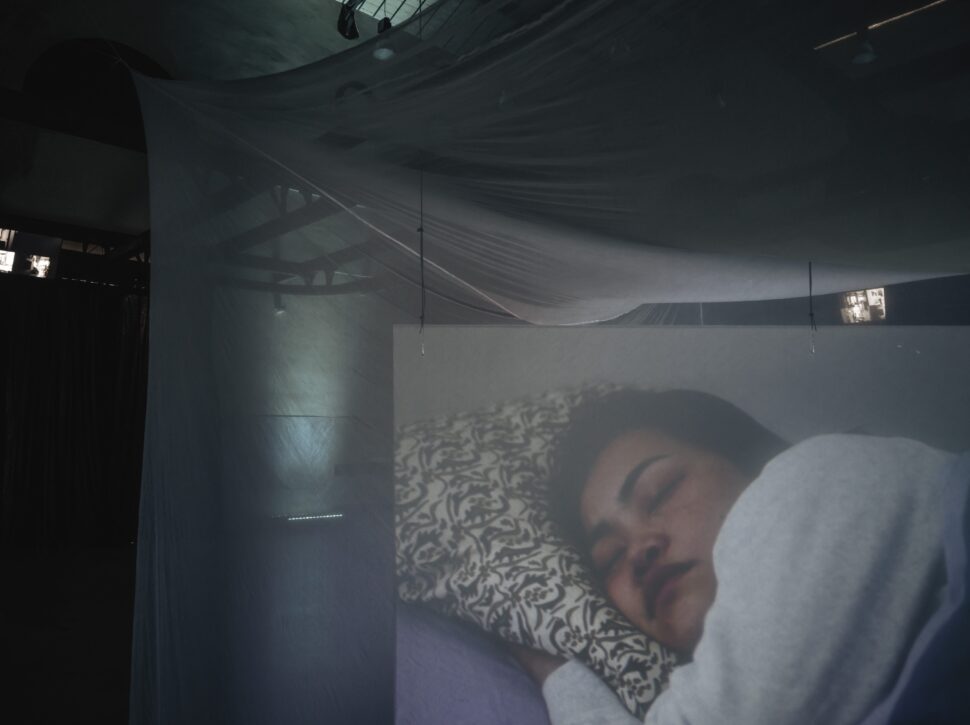Il Mio Filippino is a long-term investigation by the filmmaker and artist into the Filipino diaspora in Italy, which is the third largest Asian community in the country and the second largest in Rome. Moving away from the usual Western prejudice of associating an ethnic group with a particular job, as in the case of Filipino domestic workers in Italy, Dela Cruz adds nuances to understand this community. He highlights the strong presence and paradox of their invisibility, bringing to light the exhaustion experienced by the bodies of Filipino workers, whether men or women. Ultimately, Dela Cruz reflects on how colonial processes of control and racialization have altered the perception of these bodies within society.
Committed to various facets of artistic creation, from film to performance, Dela Cruz explores different spheres of the culture of his homeland. He delves into themes such as care, indigenous and decolonial practices, the transpacific trade of enslaved people, and principles of hospitality in pre- and postcolonial Philippines. All these aspects underscore how they still influence the sociopolitical perception of the Filipino community.
My residency will serve as a current reflection and perhaps as a question in the creation of this performance and the process of interaction with my collaborators. The process of interaction is an important and critical part of our work, especially because the people I collaborate with are the true protagonists of this project. Therefore, as part of the critical investigation, I am also trying to understand the transmission, translation, and accessibility of this work to the people involved, without undermining their ability to comprehend it. Their participation, knowledge, experience, and practice are at the heart of this work, but part of dismantling constructed identities and working with decolonial tools involves engaging them, involving the people who are at the epicenter of slavery, neoliberal capitalism, and colonization. Accessibility reinforces their ways of (re)affirming themselves, their own forms of determination, and not through how ‘others’ and ‘histories’ determine them. – Liryc Dela Cruz





